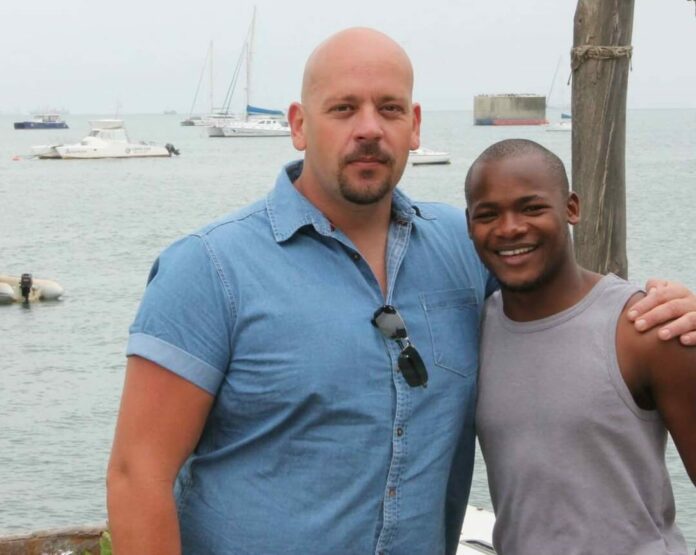A South African gay man and his Namibian spouse scored a landmark victory
after they forced the Namibian government to recognise same-sex marriages registered outside of the former South African colony.
The watershed judgment was handed down this week at the Supreme Court of Namibia following the couple’s seven-year long battle in the courts.
According to court papers seen by Sunday World, South African-born Daniel Digashu and Namibian Johann Potgieter entered into a romantic relationship in 2010.
Potgieter, who was residing in South Africa at the time, and Digashu got married in 2015 under the South African Civil Unions Act 17 of 2006.
The lovebirds moved to Windhoek, Namibia’s capital, in 2016 with a minor they had adopted from Digashu’s family, after the minor’s mother died in 2014.
At the time of relocation, the minor’s adoption process which was started in South Africa had not been finalised.
They approached a high court in Gauteng, which made an order in March 2017 declaring them joint caregivers of the minor.
In April 2017, Digashu approached the Ministry of Home Affairs in Namibia for a permanent residence permit, but was advised it would not be granted because the country did not recognise the couple’s marriage, despite it being validly concluded in South Africa.
He was advised by the ministry to apply for an employment permit, which was rejected. His appeal was also turned down.
The couple filed papers in the appeal court after the High Court of Namibia dismissed its application to have the union recognised.
The supreme court ruled in the couple’s favour, stating that there was a general principle of common law that same-sex marriages concluded outside of Namibia were recognised.
The Home Affairs Ministry, which refused to grant Digashu residence rights in Namibia based on his marriage to a Namibian citizen, did not question the validity of same-sex marriages and has not given reasons relating to public policy why these marriages should not be recognised in accordance with the general principle of common law, the court stated.
“The recognition of the equal worth of all human beings is at the very root of the constitution. The value attached to dignity is at the very heart of our constitutional framework and fundamental to it as a value of central significance,” said judge Sylvester Mainga in his ruling.
The court noted that the impact of the ministry’s differentiation of Digashu as a spouse in a same-sex marriage was far-reaching and potentially devastating when compared to the treatment of spouses in a heterosexual marriage.
“The ministry’s approach to exclude non-Namibian spouses in a validly concluded same-sex marriage from the residence rights granted in terms of the Immigration Control Act infringes on their rights to dignity and equality.”
Mainga found that the high court was bound by the supreme court’s 2001 judgment.
“The laws of Namibia do not recognise same-sex marriages, and a finding that such marriages should be recognised based on common law principles is not only fundamentally wrong, but trashes the historical, social and religious convictions of the Namibian people.”
Conceding that the laws of Namibia discriminate against same-sex relationships, Mainga said this was a matter that the country’s parliament, instead of the courts, was best placed to assess and to respond to claims to have same-sex marriages recognised.
Reacting to the judgment, Digashu said the court victory is for all LGBTQI+ people across the world, but more especially for those in Namibia.
He added that he felt honoured and humbled to have been part of the journey.
“My initial reaction was a gush of mixed emotions, from shock and excitement to absolute numbing disbelief, but it’s slowly setting in,” said Digashu.
“We always knew that the fight is bigger than us, but it wasn’t until we received this positive judgment that we realised just how much bigger than us it is, and how much the judgment means for so many people, both nationally and internationally.
“My heart is full [of joy] and my spirit [is] at peace. Our gratitude goes to colleagues at the Southern Africa Litigation Centre for their biggest contribution in this fight, the LGBTQI+ community in Namibia for standing by us, the judiciary system in Namibia, allies, fellow litigants, family, friends, and the media for the awareness raised.”
Follow @SundayWorldZA on Twitter and @sundayworldza on Instagram, or like our Facebook Page, Sunday World, by clicking here for the latest breaking news in South Africa



